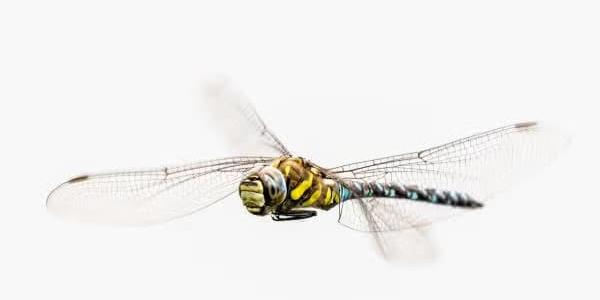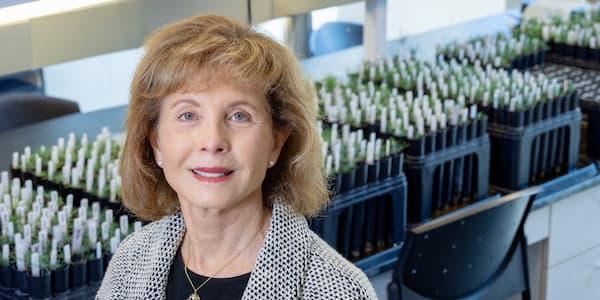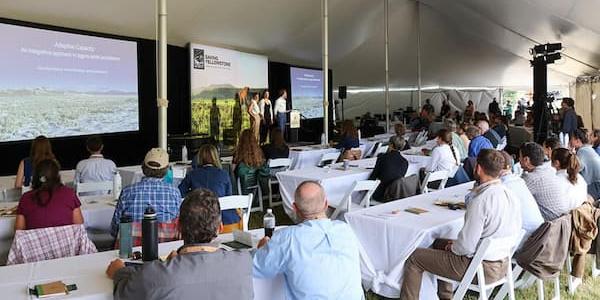Graduate Programs at a Glance
Master's Credit Hours - 30, Ph.D. Credit Hours - 60
Courses: On-campus
Start terms: fall, spring
The graduate programs in Biology (MS) and in Integrative and Systems Biology (PhD) are research-based programs designed for students with interests in any of a broad range of basic biological science subjects at any level of focus from molecular, cellular, behavioral, population, evolutionary, through to ecological. The Program is jointly administered by the Department of Integrative Biology and the Office of Graduate Education at the University of Colorado Denver.
Graduate programs in the Department of Integrative Biology include a Masters of Science (MS) in Biology and a PhD in Integrative and Systems Biology. Both programs are thesis-based degrees, meaning that you will develop, perform, and present independent research with a faculty advisor in order to graduate.
As a graduate student in our program you will conduct research in the labs of faculty at the University of Colorado Denver, the Denver Botanic Garden, Denver Museum of Nature & Science, and the Denver Zoo.
And as an MS and PhD student you may study everything from the molecular underpinnings of metabolism, to the genetics of bison, to the foraging behavior of ants, to the conservation of endangered trees.
Prospective graduate students are admitted directly into the labs of faculty members. If you are interested in joining our graduate program, please contact one of the advising faculty listed on our graduate faculty page.
To apply to one of our graduate degree programs, please visit the CU Denver Graduate Admissions Page. The annual deadline to apply to our graduate degree programs is January 1.
To learn more about applying as an international student, please visit the international admissions page.
In order to apply, you will need:
- 3 Letters of Recommendation
- A personal statement
- Your official transcripts from all of your prior institutions of higher education
- A letter of support from your prospective advisor in our program (this will be submitted by them separately)
For a detailed step-by-step guide on how to apply to one of our programs, see this helpful guide created by our graduate students.
Graduate Biology Faculty
In our program you may be advised by faculty in the Department of Integrative Biology, Department of Chemistry, Department of Psychology, and other departments at the University of Colorado Denver.
You may also be co-advised by our affiliate faculty at the Denver Botanic Garden, Denver Museum of Nature & Science, and Denver Zoo. If you are interested in working in the lab of a researcher at one of these affiliate institutions, please be sure to also contact a faculty member at CU Denver who can serve as your advisor.
Financial support for graduate students in biology is usually from a combination of research grants, fellowships, and teaching appointments. The following list is non-exhaustive; students are expected to discuss financial plans for funding their education program with their advisor, including plans for living expenses, tuition, research expenses, and health insurance.
- Teaching Assistantships: The Department of Integrative Biology offers graduate teaching assistantships (GTA) on a competitive basis. GTA appointments are for 10 hours/week per lab section taught (maximum of 20 hours/week) and are compensated by a salary and tuition benefits. Any student on GTA must enroll in BIOL 6002 (Pedagogy) during their first semester of teaching. Note: BIOL 6002 is only offered during the Fall semester of the academic year.
- Research Assistantships: Individual advisors may offer graduate research assistantships (GRA) that pay a salary and tuition benefits for conducting work on an externally funded research grant. GRA appointments are for up to 20 hours/week during the academic year, and up to 40 hours/week during summer.
- Research Dissemination: The Department offers a one-time non-competitive travel grant to each student admitted to the program. This one-time grant may only be used for travel to present research results at professional meetings. The College of Liberal Arts and Sciences and the Office for Graduate Education both also offer support for graduate student research and travel to national meetings to present their thesis or dissertation work. Applications for those awards are reviewed on a rolling basis. Contact the Program Director for more information.
For more information about financial aid, please visit the webpage for CU Denver’s Office of Financial Aid
Applicants from nearly the entire western United States qualify for in-state tuition via the WICHE interstate tuition reciprocity compact. Do you qualify? Check the WICHE website to learn more.
The University has also provided an online tool to estimate the cost of all our programs.
Our MS and PhD programs have the following criteria for admission
- Informal verbal committment from a prospective faculty advisor to admit you as a lab member. They will need to submit a letter to the admissions committee on your behalf when you apply.
- A BA/BS from an accredited institution, awarded in the past 10 years
- Minimum undergraduate 3.0 GPA
- 3 letters of recommendation
- Official transcripts from all institutions attended
- TOEFL: required for international applicants from countries in which English is not the official language
- NOTE: the Biology graduate programs NO LONGER require GRE scores as part of admission
- Pre-requisite coursework:
- One year of general biology (including molecular, cellular, organismal, ecological, and evolutionary topics) or equivalent in training or coursework
- One year of any combination of chemistry, physics, mathematics, or equivalent in training or coursework
- One course in applied or biological statistics (through regression and ANOVA), or equivalent
- Additional pre-requisites may be set by the student’s faculty advisor(s)
- Conditional admissions will be considered when there are exceptions to admission pre-requisites.
The Biology Program in the news
Biology in the news
- Southwestern White Pine Losses Raise Questions About Forest Management In Santa Fe National Forest
- CU Denver's Dr. Michael Moore Wins Prestigious Bartholomew Award for Groundbreaking Research on Animal Adaptation
- Up To 35% Of Wyoming's High Country Is Dead 'Ghost Forest’ — And It's Spreading
- An NSF Grant Will Support More Learning Assistants on Campus
- Denver Scholarship Foundation Celebrates Scholars - Including Multiple CU Denver CLAS Students and Grads
- NSF Awards Michael Moore, CU Denver Integrative Biology Professor, more than $640,000 in New Grant
- Whitebark Pine Faces 80% Decline in Current Habitat by 2050: What That Means for Bears, Birds, Farmers, and Ranchers
- CU Denver Attends Summit, Sparks Collaboration to Safeguard Yellowstone's Future
- Dragonflies Survived Asteroids—But Wildfires and Climate Change May Push Them to Extinction According to CU Denver Study
- Doctoral Student Fayelynn Scheideman Featured in Museum of Natural History Tour



